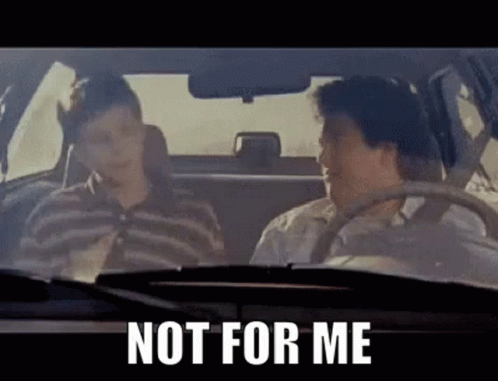Not Exactly a Nobel for Price Theory
Connecting natural experiments and price theory
Who got up at 5:30 Monday morning for the big announcement??? Well, if you missed it, this year’s Economics Nobel Prize, or simply THE Nobel Prize as I call it, was awarded to David Card, Joshua Angrist, and Guido Imbens.
They won THE Nobel Prize for their work on natural experiments, which are when events outside of the researchers’ control (“in nature”) closely replicate a controlled experiment. With experiments, natural and controlled, the goal is to tease out causation from an otherwise jumble of correlations, which we know are not causation. It is a Nobel for the type of empirical work that dominates most of the profession.
The prize brought me back to my master’s program days when I was in Barcelona, drinking sangria, with Stata open while reading Mostly Harmless Econometrics. 🍷 Daydream over.
Many non-economists will frame the Nobel as a win for the empiricists over theorists. Worse yet, people frame it as a win for a particular policy, such as a $15 federal minimum wage. If science were a battle between sides, then I'd be upset by this Nobel.
Science isn’t a battle. Yes, I'm quite critical of atheoretical work. I don't love the profession's focus on searching for natural experiments and quasi-experimental variation in the data.
We started this newsletter because we think that the profession unfairly ignores economic theory, especially price theory. Price theory has been supplanted by an obsession with finding natural experiments without thinking through the economics.
But even if that obsession exists within economics, or if it is the norm, we enlightened readers of Economic Forces can avoid such pitfalls. We can and should learn from Card, Angrist, and Imbens. More generally, we should learn from the revolution that they helped usher in.
In particular, as Kevin Bryan pointed out, the Nobel winners' work highlights the importance of bringing together theory and empirical work together. Let me elaborate along different lines from Kevin.
At the core of the economic point of view is the idea of scarcity. We can't have it all. Since we recognize that we are constrained in what happens, economics leads us away from dreams of the best outcome possible. How is X different than Y? The basic framing directs the economist’s focus to comparisons more generally. As I said in a recent post,
Supply and demand is really about making comparisons. It's not just about where supply and demand cross each other; it is a tool for thinking through comparisons. After all, economics tells us to always ask "compared to what?"
That’s what causal inference, such as using natural experiments, is trying to be explicit about. Let’s be precise about what we are comparing. Who is being affected by the policy? That’s the treated group. Who is not being affected by the policy? That’s the control group. We can only say something meaningful by comparing the two, not by just looking at one, and we need to be explicit about the comparison we are making. When done properly, this focus on causal inference is better than simply running a regression and having some implicit comparison in your head based on the resulting coefficients.
Let’s be explicit. Let’s tie it to economic theory. Hopefully.
There is another price-theoretic idea from the natural experiment research program. The effects of policies may differ between the average and the margin; different groups may vary in their marginal and average effects.
The difference between the average and the marginal is a central idea within price theory. People are different and will respond differently. The marginal seller and buyer determine the price, regardless of what’s happening to the average seller and buyer.
By being explicit about what econometricians are estimating, we can hopefully more closely tie the economic theory (which is about marginal actions often) to basic regressions, which may be capturing the average action. The tools are ready-made to help the price-theorist.
Now there are lots of things that I think should be the center of attention that often are not. I have a year plus of newsletters elaborating on that, things like how markets are connected or there are multiple margins of adjustment.
The outcomes that price theory is focused on are hard to capture in natural experiments. Hard, not impossible. Only someone trained in both approaches will be able to do it.
We shouldn't judge a method based on the worst defenses but the best. There are some terrible uses of formal models that obscure the idea and create barriers to understanding. Some economists take their mathematical models too literally. Their errors do not mean that we should shun all mathematical models!
Similarly, we shouldn’t be too negative about the recent so-called “Credibility Revolution” in economics. The best work on natural experiments recognizes methodological shortcomings and harnesses economic theory. That’s what we should be applauding and thinking about in reaction to the Nobel to Card, Angrist, and Imbens. They profoundly influenced the profession and deserve the Nobel by any metric, even if I like directly price-theoretic work more.
Readers may be interested in my piece in National Review on teaching supply and demand vs. other hot topics like behavioral economics. You know, our Economic Forces shtick. I conclude:
The challenge of teaching basic economics is more important than ever. Last school year, we lost two giants in the world of economics education: Walter Williams and William Allen. Williams, a professor at George Mason, taught basic economics in the classroom and through his syndicated column. Allen did likewise through his textbook (co-authored with Armen Alchian) and on his radio show. Without these powerful voices, it is up to the rest of us to pick up some of the slack of teaching basic economics this school year.
This year’s Nobel drove home that point. Alchian and Demsetz never got the prize, and they aren’t around to teach price theory either. Anyways, check out the article.



